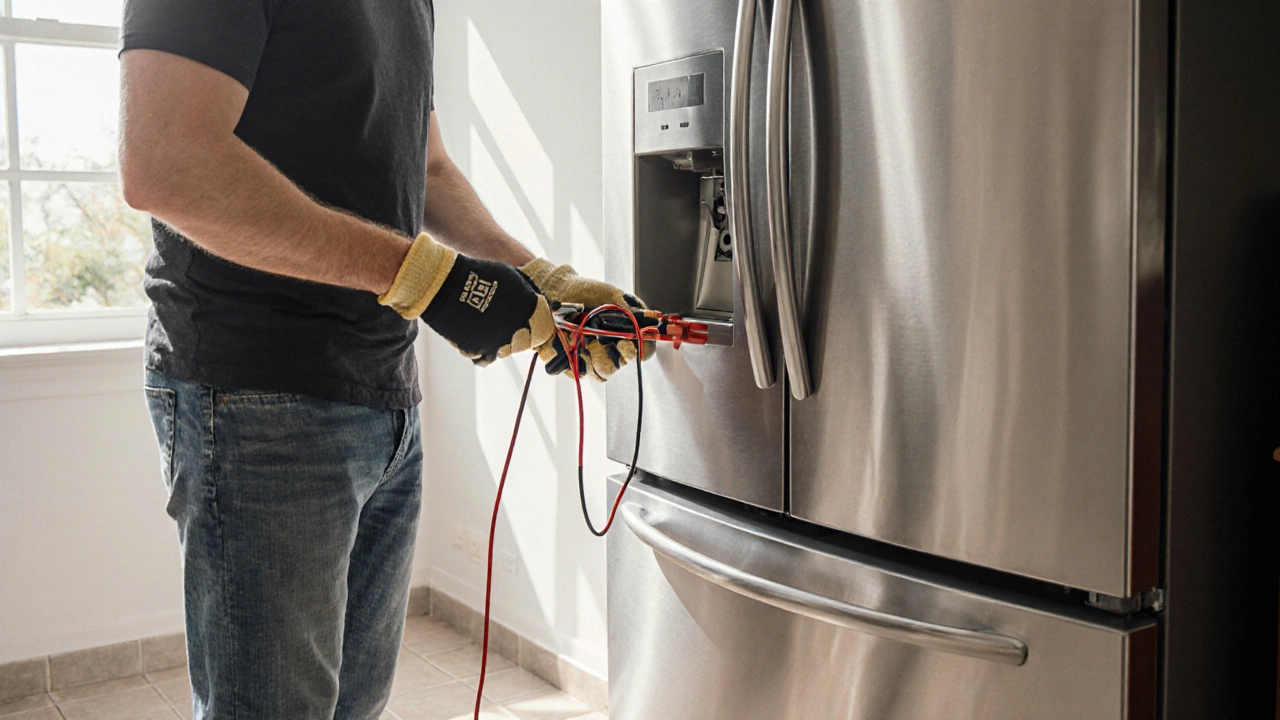Learn how to safely diagnose and fix common fridge problems yourself. From cooling issues to noisy fans, step-by-step guides and a handy checklist help you decide when to DIY and when to call a pro.
Refrigerator Compressor: What Every Homeowner Should Know
When you hear the term refrigerator compressor, the pressurising unit that moves refrigerant through a fridge’s cooling loop. Also called a fridge compressor, it’s the heart of any domestic fridge. Refrigerator compressor health decides whether your groceries stay fresh or turn into a warm mess. Heat pump compressor, a similar pressurising device used in air‑source heat pumps shares the same basic principle, but it handles higher pressures to move heat into a building. Freezer compressor, the component that keeps a freezer‑section at sub‑zero temperatures is a tougher sibling, built for longer runs and colder set points. Understanding these three pieces helps you spot problems early, gauge compressor cost, the price range for parts and labour in the UK, and decide when appliance repair, professional service to restore a faulty unit is worth the call.
Key Factors That Influence Performance and Price
The first thing to know is that a refrigerator compressor enables the entire cooling cycle – without it, the refrigerant never compresses, the condenser can’t release heat, and the fridge simply stops. That simple fact creates a chain of dependencies: the compressor’s lifespan influences the overall reliability of the appliance, and its failure often triggers a spike in electricity use as the unit works harder to stay cold. Most UK models use a sealed‑system motor that lasts 8‑12 years; beyond that, wear on the piston rings or bearings can cause loss of pressure, leading to higher temperatures inside the fridge.
When a compressor starts to sputter, you’ll notice louder-than‑normal humming, intermittent cooling, or ice build‑up in the freezer section. Those symptoms are the same for heat‑pump and freezer compressors, but the cost to replace each varies. A standard refrigerator compressor replacement in 2025 typically runs between £150‑£300 for parts, plus labour of £80‑£130. A heat‑pump compressor can cost up to £600 because of its higher capacity, while a freezer compressor may sit around £250‑£400 because of its tougher construction. These price differences stem from the different pressure ratings and the specialized seals each type requires.
Another factor is the type of refrigerant used. Modern fridges often run on R‑600a (isobutane), which is more efficient but requires a compressor designed for lower‑temperature operation. Older units with R‑134a need a different head design, and swapping refrigerants without the right compressor can void warranties. That’s why a qualified appliance repair professional will check the refrigerant type before recommending a new compressor – they need to match the compressor’s design pressure to the refrigerant’s properties.
Maintenance also matters. Simple tasks like cleaning condenser coils, checking the door seals, and ensuring the fridge sits on a level floor can extend a compressor’s life by a few years. If you hear the compressor cycling on and off quickly, it could be a sign of a clogged condenser or a faulty thermostat, both of which are cheaper fixes than a full replacement.
Finally, the decision to repair or replace hinges on the age of the unit and the cost of parts. A fridge under five years with a failing compressor is usually worth fixing – you’ll save on the appliance’s original purchase price and keep the warranty intact. For a unit older than ten years, the replacement cost may approach the price of a new fridge, especially when you factor in potential secondary failures like a cracked sealed system.
All these points – the role of the compressor in cooling, the cost differences between refrigerator, heat‑pump, and freezer compressors, the impact of refrigerant type, and the maintenance habits that keep them running – form the backbone of smart appliance ownership. Below you’ll find articles that dive deeper into each of these topics, from detailed cost breakdowns to step‑by‑step troubleshooting guides. Whether you’re trying to decide if a repair makes sense or you simply want to know how long a compressor should last, the collection ahead gives you the practical insight you need to make an informed choice.

